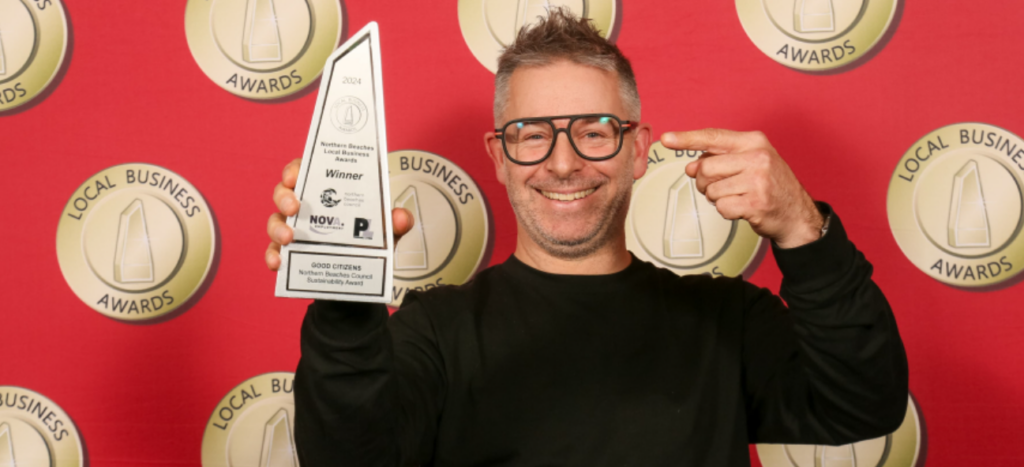
Seven years ago, when Nik Robinson’s 2 boys questioned the amount of plastic waste piling up in the world, he decided to do something about it.
From his home on the Northern Beaches, he began experimenting with using the biggest problem – plastic bottles – to create a lasting and useful product.
Two years and 2,503 attempts later, Good Citizens launched their first pair of sunglasses made from 100% recycled materials.
Fast forward to today and Nik, partner Jocelyn and kids, have spoken at the UN, met with world leaders, had a window in London’s Selfridges department store and manufacture, locally, a range of modular recyclable frames made entirely from plastic bottles.
In short, not only have they built a successful business but are just as passionate about ‘untrashing the planet’ as they were at the start.
In 2024, they added the Sustainable Business Award – part of the annual Northern Beaches Local Business Awards – to their trophy cabinet. And with entries now open for the 2025 award, Nik and Jocelyn are encouraging local business owners to take small steps to transform their business to be more sustainable.
Nik says, “address small things that you can incrementally do like green energy, solar or simply sorting rubbish into the right bins.. You don’t have to do everything overnight, but consumers will appreciate the efforts you do to make your business and the planet a much better place.”
The judges recognised the sustainability principles that Good Citizens use across their operation. Products (frames, boxes, cases, cleaning cloths) were all formerly plastic bottles, they use compostable mail bags, green energy, recycle waste and their delivery service is 100% carbon neutral.
Their production is equally green and efficient. Using 100% recycled plastic means they use 70-75% less CO2 in manufacturing than brands who use new plastics. With modular parts in their frames, elements are easily replaceable giving frames a longer life and creating less waste. Plus, they have developed a fast production time (using robots to make a frame in 100 seconds rather than the typical 100 hours) and take back broken parts to be recycled.
Not a bad result for an idea that started around the family kitchen table!
Article Credit: northernbeaches